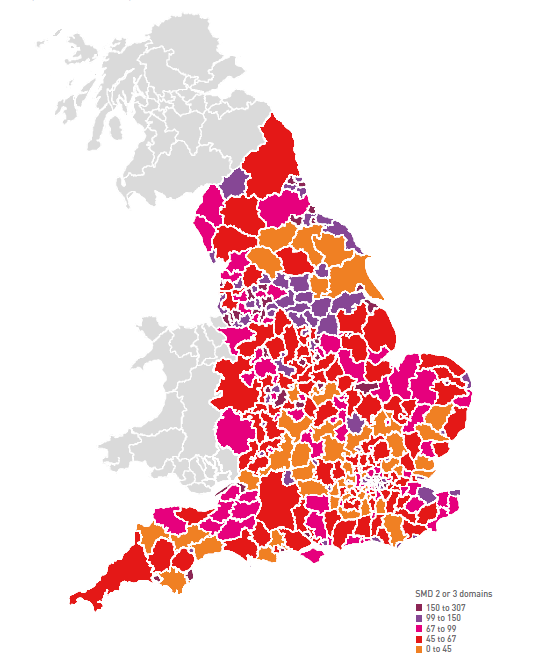As the dust starts to settle around the Chancellor’s announcements what can we take from it?
Here are the headlines in what I saw:
- The public health grant will continued to be ring-fenced until 2017/18 but will have annual real terms cuts of 3.9% across the Parliament — and there will be consultation on funding public health from retained business rates rather than central government grant.
- Police budgets will be protected in real terms (as will the National Crime Agency’s), but a proportion of the burden of raising money to pay for that will change from central government to local government.
- The NHS has been given considerable upfront funding, but will be expected to use that to introduce the government’s 7-day NHS ambitions.
- Mental health services have been given an additional £600 million which is mainly for talking therapies.
- Funding for targeted homelessness intervention is protected and there’s £40 million for services for victims of domestic abuse.
- £105 million over the Parliament through Social Impact Bonds, to help deal with issues including homelessness, poor mental health and youth unemployment.
- £1.3 billion of capital investment in the prison estate over the next 5 years, which the government hopes will improve rehabilitation rates, and reduce the ability of prisoners to take drugs while in prison.
- The development of a Work and Health Programme after the current Work Programme and Work Choice contracts end, which will focus on claimants with health conditions or disabilities and those unemployed for over 2 years.
There’s no doubt more, and even more will emerge as the detail gets poured over by experts.
My initial reaction has been to wonder if we’ve had our expectations somewhat managed by the Chancellor and his team. So many many media stories were out there suggesting that cuts would be much more savage than has been the case that to some the results may seem like a relief.
Indeed some of the announcements above have to be welcome, such as additional resources for mental health provision and for victims of domestic violence, and the protection of the homelessness budget.
Others I’m going to need some convincing on — the welfare reform agenda that has been pursued in the last few years has been very rough on people with drug and alcohol problems, particularly if they have other co-occurring issues. If the new Work and Health Programme is to be different I don’t think it can’t rely on conditionality to achieve better outcomes.
And in public health it looks like some of the hard decisions of this year are going to keep on coming for the rest of the Parliament.
As the LGA put it in their briefing:
Councils will do everything they can to protect services but these reductions will inevitably impact on health outcomes. Councils will in some cases be forced to make a decision between different services.
Where they’re making those very hard choices we can only hope they work closely with providers to search for solutions that don’t widen health inequalities, and ensure that the most vulnerable are protected.

Combined Severe and Multiple Deprivation prevalence index by Local Authority district taken from the Lankelly Chase Hard Edges report (2014)
In the longer term it will be important to look very carefully at the proposals that come forward around funding public health through business rates. As I’ve argued before, the areas of greatest need are very closely aligned with the areas of highest deprivation. So any change that made it more difficult for those areas to fulfil their duties to improve the wellbeing of their most vulnerable citizens needs to be resisted.
In the meanwhile it’s heartening to hear that the APPG for Complex Needs will be looking at the impact of the spending review of people with multiple needs and dual diagnosis, and it will be worth submitting evidence and thoughts through that route if you can.
We'll be looking into the detail of today's #spendingreview and what it means for people with multiple #complexneeds & a #dualdiagnosis
— APPGComplexNeeds (@APPGComplexNeed) November 25, 2015
Andrew Brown is the former Director of Policy for DrugScope and is now working with @MindCharity @MEAMcoalition & @Addaction. Read more by Andrew on his Medium.
